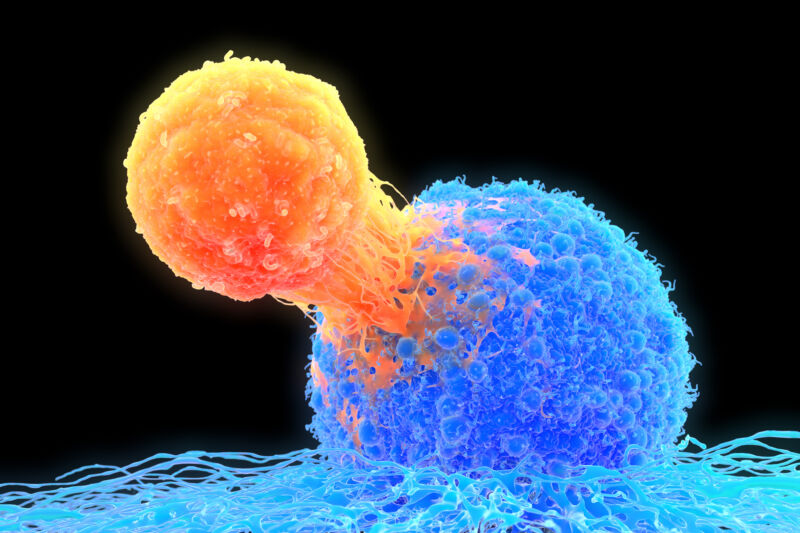For T-cells, omicron is nothing unusual

Enlarge / False-color image of a T-cell (orange) latching on to a cell in preparation for killing it. (credit: Getty Images)
From the start, the omicron variant had experts worried because its version of the virus's spike protein carried mutations in many of the sites that are recognized by antibodies. This meant that antibodies generated to combat earlier variants like delta were less likely to recognize the newcomer. The fears have played out in the form of lowered immunity to omicron and the failure of some antibody-based therapies.
But all the worries were focused on the immune system's antibody response. The immune system also produces T-cells that recognize the virus, and it wasn't clear how omicron affected their response. Based on two recently published papers, the answer is "not much at all," which could help explain why the vaccines continue to protect from severe disease.
Those other cellsThe T-cell-based immune response works very differently from that of antibody-producing cells. It relies on the fact that all cells chop up a small fraction of the proteins they make. Specialized proteins then grab on to some of the resulting protein fragments and display them on the cell's surface. Once on the surface, they can be recognized by a receptor on the surface of T-cells.
Read 12 remaining paragraphs | Comments